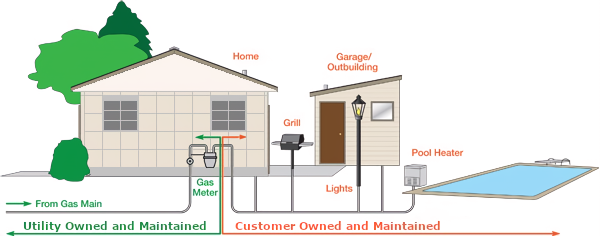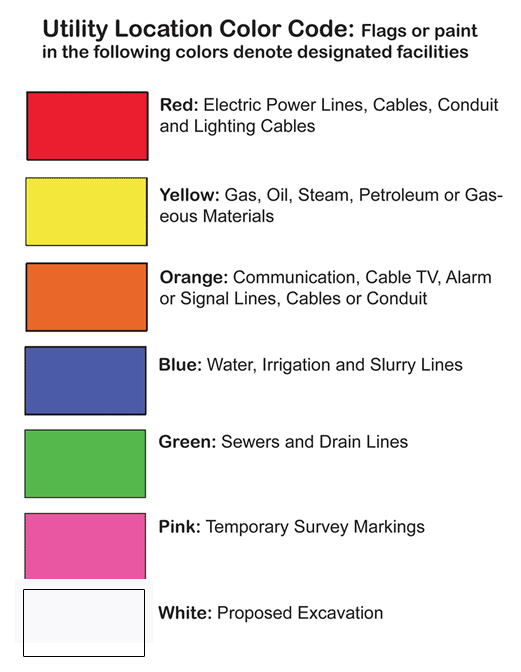Smell Gas?If you smell natural gas leave the area immediately and, from a safe distance outdoors, call the
local gas utility's emergency number or 911. Do not hesitate to report a gas leak because gas can migrate and quickly accumulate in buildings.
Do not use cell phones, lights, appliances, cars, flames, or sparks near suspected gas leaks because these can ignite it.
Detecting Natural Gas
Smell
Natural gas has an odorant added to it giving it a distinctive smell to help detect leaks. Some people describe this smell as rotten eggs, sulfur, or garlic.
Hear
A leak can make a hissing sound near a gas appliance, meter, or pipeline.
See
Natural gas leaks can caused unexplained dead vegetation along a gas pipeline and bubbles in standing water. High pressure gas leaks can blow dirt.
Gas Meters
Keep the area around gas meter equipment clear of snow and ice. Carefully remove snow and ice by hand to avoid damaging the meter.
Clear all vents of snow and ice to prevent carbon monoxide from building up in your home.
Do not place plants, objects, or structures around gas meters. Utility personnel need unobstructed access to the meter.
Maintenance
Have a qualified person inspect furnaces, vents, appliance connectors and chimneys at least every other year.
Your gas utility is responsible for maintaining piping up to and including the gas meter. You are responsible for piping and appliances after the meter.
 Utility owned and maintained properties include the line from the gas main and the gas meter. Customers are responsible for piping and appliances beyond that point.
Utility owned and maintained properties include the line from the gas main and the gas meter. Customers are responsible for piping and appliances beyond that point.
Digging
Three business days before you intend on digging or disturbing soil call 811 or visit
diggershotline.com to create a ticket. This is a free service to mark underground utilities so you know where it is safe to dig.
 Flags or paint in the following colors denote designated facilities:
Flags or paint in the following colors denote designated facilities:
Red = Electric Power Lines, Cables, Conduit and Lighting Cables
Yellow = Gas, Oil, Steam, Petroleum or Gaseous Materials
Orange = Communication, Cable TV, Alarm or Signal Lines, Cables or Conduit
Blue = Water, Irrigation and Slurry Lines
Green = Sewers and Drain Lines
Pink = Temporary Survey Markings
White = Proposed Excavation